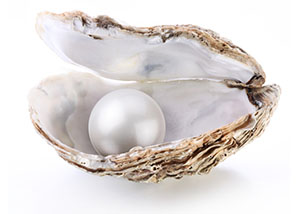A Homily for the Seventeenth Sunday in Ordinary Time, Year A
I love murder mysteries. Perhaps this is because, like many fans of the genre, I have a heightened sense of justice. I want to see the bad guy get his comeuppance. I want to see the murderer swing at the end of a rope.
My all-time favorite mystery writer is the British author Dorothy L.Sayers. who wrote during the middle of the last century. Her detective is an aristocratic sleuth by the name of Lord Peter Wimsey. I like Miss Sayers because, unlike Sir Arthur Conan Doyle, she gives you all the clues you need to solve the murder.
You won’t be surprised to learn that I’ve even thought of writing some murder mysteries myself. One potential mystery is entitled Opus delicti–about an operatic soprano who kills off all her rivals with poisoned throat spray. Then there’s Digital Death, which tells the story of a psychopath who encodes hypnotic sleep messages into music files which he then gives to his victims to use while driving. Finally, there’s Chalice of Forethought—about a high-school-teaching priest who systematically murders his students. I’ve got a lot of raw material for that one!
Yes, I really enjoy murder mysteries, and one of the things I have on my bucket list is to participate in a murder mystery weekend. Now whenever we attend a typical theatrical performance, we can usually distinguish the actors from the audience. The thespians are up on stage. The rest of us are seated in the orchestra or in the balconies. When it comes to murder mystery weekends, however, the situation is very different. Is the pretty young lady sitting across from you at the breakfast table someone in search of two days’ entertainment, or is she one of the dissembling cast of performers? What about that man with the dark eyes and bushy eyebrows? Is he really a weekend attendee, or will he turn out to be the murderer? The question is: Who’s who?
In most of Jesus’ parables, it is relatively easy to figure out who is who. In the story of the Prodigal Son (Luke 15:11-32), for example, the father clearly stands for God, and the sons represent us.
What about the two little parables in Matthew 13:44-46?
The kingdom of heaven is like a treasure buried in a field; he who finds it, hides it, and in his joy goes and sells all that he has and buys that field. Again, the kingdom of heaven is like a merchant in search of fine pearls. When he finds a single pearl of great price, he goes and sells all that he has and buys it.
Obviously, both the person who finds the treasure and the merchant represent us. The treasure and the pearl are the kingdom of God. The message is that the kingdom of God ought to be our top priority. We need to seek first the kingdom of God (Matthew 3:33) and be willing to relinquish everything else, if necessary, in order to attain it.
Imagine my surprise when a friend pointed out that it is just as easy to argue that the treasure finder and the merchant stand for God. In that case, we are the treasure, and we are the pearl. We are the treasure buried in the dirt of our sin. We are the pearl of great price. God gives all that He has, namely His Son Jesus, in order to redeem us (literally to buy us back). Now the message is God’s overwhelming love for us. God makes us His priority. Awesome!
How are we to respond to God’s overwhelming love? I suggest that one answer is prayer. What is prayer? In his book Prayer for Beginners (Chapter 17), Peter Kreeft, a convert to Catholicism, gives some surprising advice:
When we pray, instead of trying to produce love in our souls toward God, we should be basking in God’s love for us…. Therefore our prayers should consist mainly of rousing our awareness of God’s love for us rather than trying to rouse God’s awareness of our love for him.
We respond to God’s love through prayer. Prayer, in turn, begins when we remind ourselves how much God loves us. We are God’s treasure. We are the pearl of great price. Once this awareness is firmly planted in our hearts, we will joyfully relinquish all for the love of God’s kingdom. The kingdom of God will become our treasure and our pearl. Thus we come full circle!
Who’s who? We are the treasure finder and the merchant, but so is God. The Kingdom of heaven is the treasure and the pearl; so are we. That’s what I call a real mystery!

